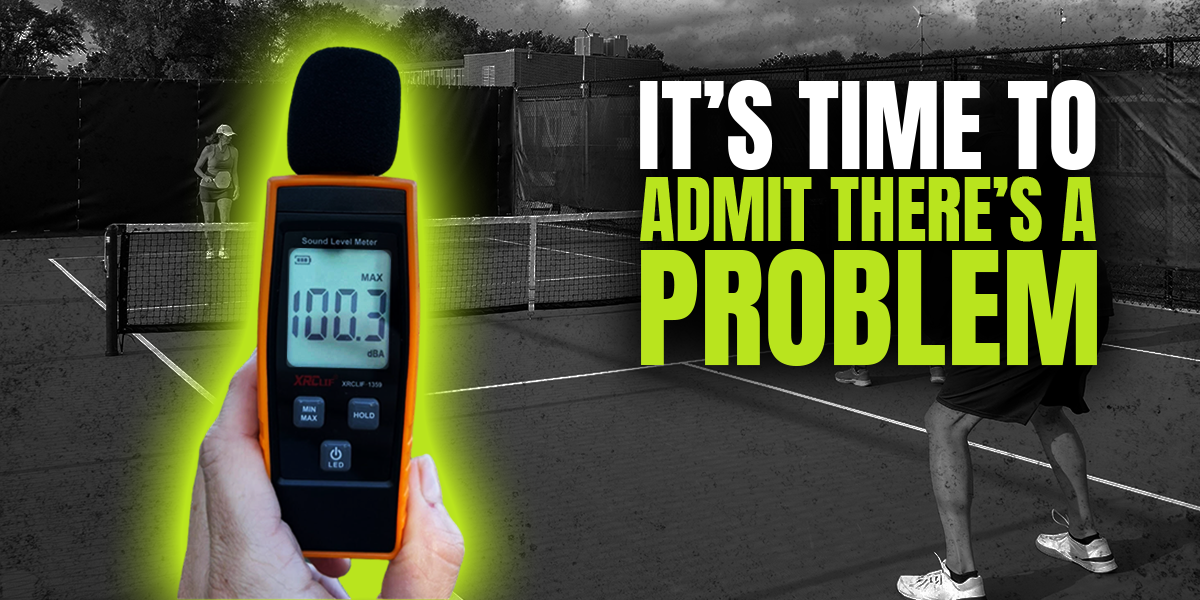
Like many pickleball players, when I hear (another) story about how noisy pickleball is, I simply roll my eyes and spew a few snarky remarks about how some people just can't let others have any fun.
So, you can imagine my response when I discovered there was a Facebook Group called the "Pickleball Noise Relief Group."
My eyes rolled back, my lips curled, and I prepared to write something blasting a bunch of Karens for wanting to shut down pickleball.
However, after a few conversations with the group's leader, Nalini Lasiewicz, and actually listening to what they had to say, I realized that automatically labeling them as a pickleball hate group that just wanted to ruin our sport was completely off base.
And my preconceived notions about people complaining about pickleball noise couldn't have been further from the truth.
Basically, I was ... I am wrong. And so are many of us who think that pickleball doesn't actually have a noise problem.
Because for these people and many others who are too afraid to speak up, it's a serious problem that's causing them health and mental issues.
Pickleball players: it's time we admit that there is a pickleball noise problem.
Meet Nalini Lasiewicz
Nalini Lasiewicz is a resident of a Los Angeles suburb who first got involved with pickleball noise issues during the COVID lockdown.
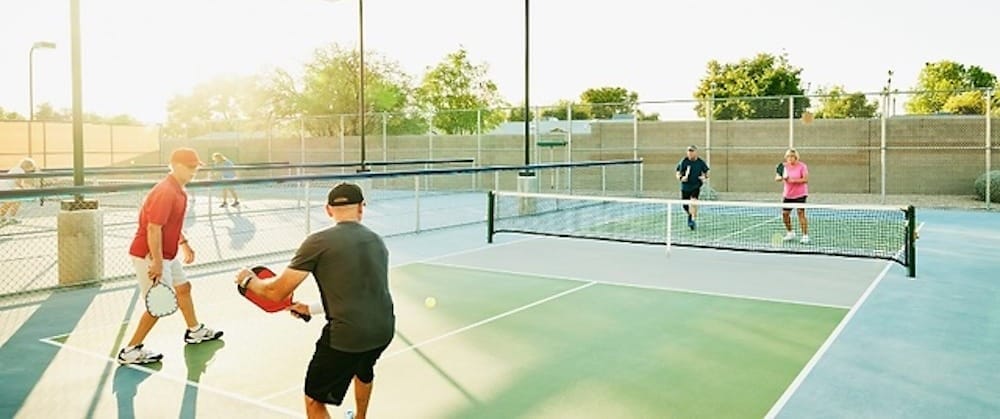
During that time, a single tennis court within a residential zone caught the attention of some pickleball enthusiasts.
Nalini says it began because "Pickleball Ambassadors and players from all over the region lobbied our small city government to pilot and test out a conversion from tennis to a dual-use sports court."
The neighbors of this proposed facility – most located within 150 feet or less from the proposed conversion spot (the closest was only 23 feet away) – became concerned about possible noise, traffic, and parking impacts the conversion could cause.
While she didn't live in the neighborhood, Nalini – who has a degree in organizational leadership – had friends who did, and so she agreed to help them organize a study to find the potential impact this court could have on them and their neighbors.
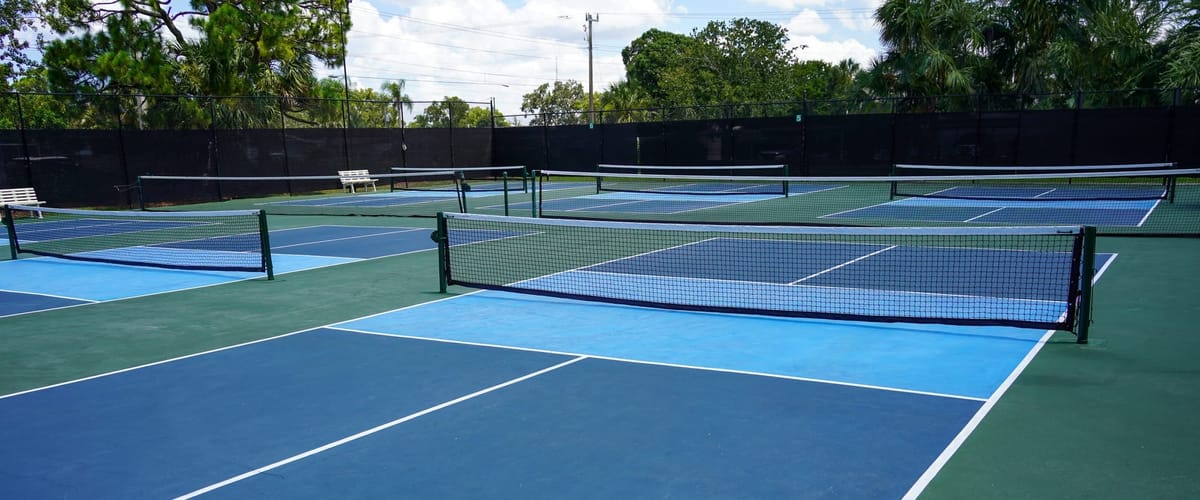
With their own money, they hired a sound engineer to perform a noise impact study, then paid him to give a formal presentation and answer questions on his findings.
According to Nalini, the study concluded that this was not a feasible location for outdoor pickleball courts due to the homes being so close (generally, homes should be at least 500-700 feet away to be in a safer range).
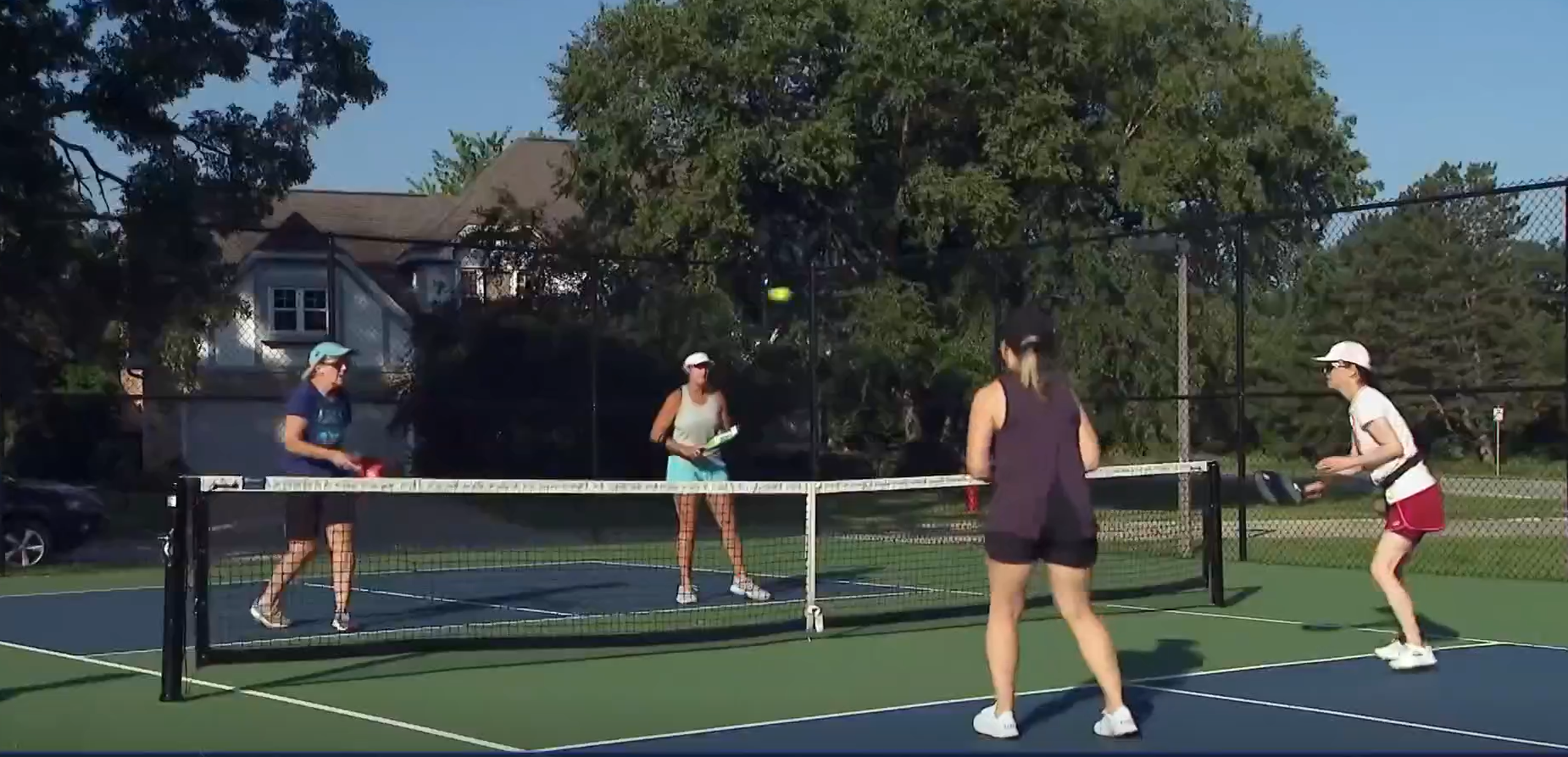
That presentation, however, did nothing to sway the City Council members.
"It was clear they had already made up their minds to go ahead. The Mayor didn’t even attend the hearing," Nalini says. "The four members voted to reject our appeal, and the conversion went forward."
Nalini says this exact scenario has played out countless times since she became an administrator of the Facebook Group created by Rob Mastroianni, a Cape Cod resident who had to sell his family home due to the noise becoming too much to deal with.
Mastroianni's story was featured on ABC News in August 2023.
The group is dedicated to finding and supporting others across the country in similar situations. For many, it's a platform that allows them to find ways to regain the peace they've lost in their neighborhoods.
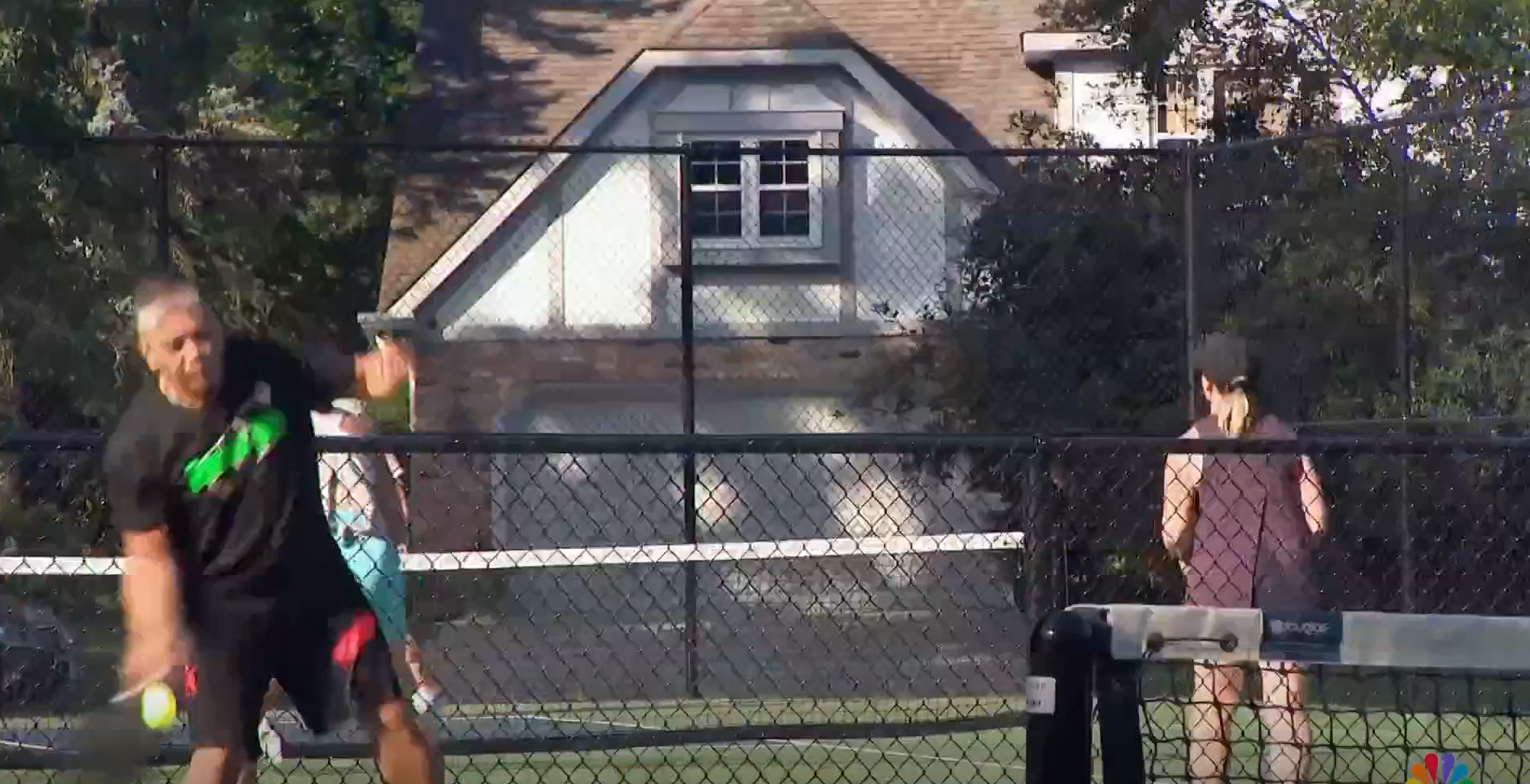
"We don't hate pickleball. We think everyone should play it."
In a recent YouTube video, Nalini interviewed Will and Britness, a couple from Owensboro, Kentucky, who had recently joined the group and told their story.
The video begins with a recording of the noise outside their home. In it, you can hear the familiar pings of a pickleball as well as the chatter and sounds from the players themselves.
During the interview the couple shares their story of how they were introduced to pickleball by a friend and actually enjoyed playing the game themselves.
Coming from tennis, Will thought adding pickleball courts was a great idea and agreed with the city's plan to build some.
Unfortunately, soon after the courts were built and the noise began creeping into their home, they realized it was a mistake.
"I'm kind of ashamed to talk about it, it seems like such a silly thing," Will says. "I can't even describe the amount of stress it's put on me."
The video ends with a question from Nalini, "What would you like to say to pickleballers who are faced with complaints?"
Will responds:
"I would like to say to them, I understand your situation, and I hope you understand mine as well. I don't have anything against pickleball. I just hope they do it in the right location where they aren't forcing people to listen to it for hours at a time. Our world would be a better place if more people played pickleball."
Most people are too scared to speak up
Unfortunately, like many things in our country at the moment, this issue has divided many, and the passion on both sides can turn ugly in an instant.
In our conversation, Nalini shared stories of how people in these neighborhoods don't speak up because of fear of personal attacks or being bullied.
She told me of houses being graffitied, physical threats, and even a story of how someone used their car to nudge a woman for complaining.
"They're scared to say anything because the response is often vile and lacking compassion or sympathy for the affected person," she said.
The common responses at meetings or in forums showcase this, with many pickleball players telling these people to get double-paned windows, wear noise-canceling headphones all day while at home, or even tell them they should move.
Imagine having a problem with something going on in your neighborhood – a place you perhaps grew up in yourself or a home where your children grew up – and when you voice that concern, you're told you should move.
Can you imagine how that would feel?
Yet, this is the response many receive – not just from pickleball players, but also from local government, the city council, and even the police.
Most often the response is a condescending reply like, "Really, people having fun is a problem for you?"
At this point, Nalini has seen or heard it all, as members meet regularly over Zoom in a support group setting. People in these situations feel like they're being ignored and cast aside.
They feel as if their rights to peace inside their home no longer matter.

They have stories of how they can't let their kids play outside or have friends over for an outdoor barbecue anymore, not just because of the noise, but also because of the screaming of obscenities by adults and even the occasional male deciding to urinate behind a tree in broad daylight.
"It's as if all common decency has been thrown out in the name of play," Nalini adds.
These actions, perhaps in isolation, may not seem like much, but when it's combined with everyone else's stories, and lived by each of them day in and day out, that they compound into a bigger problem.
And, whether you're ready to admit it or not, this is a problem.
What high-pitched, chronic, persistent noise can do
According to the National Institute on Deafness and Other Communication Disorders (NIDCD), long or repeated exposure to sounds at or above 85 dBA can cause hearing loss, while sounds at or below 70 dBA are generally safe.
Individual hits from pickleball – the ping, ping, ping – registers at an 85 dBa each. And this is from 100 feet away.
For comparison, 70 dBa is equivalent to a vacuum cleaner or freeway noise. However, 85 is somewhere between a power tool and an alarm clock.
45,000 pops per day
Perhaps this wouldn't be a huge deal if it were only for a few hours a day (which is the amount of time individuals play), but when it's happening repeatedly for 10-14 hours a day, seven days a week, that's a different story.
Each of these pops has a name. They're called noise events. One or two noise events aren't going to affect many of us.
However, on a pickleball court, the average number of pops per hour is anywhere from 600 to 900.
If a park has six pickleball courts, at an average of 750 pops per hour per court, then residents who live in nearby homes will hear somewhere close to 45,000 pops (noise events) over a 10-hour span.
That's more than one pop per second (there are 36,000 seconds in 10 hours).
So, these people are suffering through the equivalent of an alarm going off every .8 seconds for 10 of their 16 waking hours.
The difference being of course that you can turn off an alarm clock.
No one in these neighborhoods can turn off the popping sound of the pickleball courts.
And when there's nothing you can do to stop something, you develop what psychologists call "Learned Helplessness."
What Learned Helplessness does to your health
Learned Helplessness is a psychological state that occurs when someone repeatedly experiences a negative, uncontrollable situation and feels like they can do nothing to stop it.
People who perceive events as uncontrollable show a variety of symptoms that threaten their mental and physical well-being.
Some examples of learned helplessness include:
- A smoker who repeatedly tries and fails to quit and eventually stops trying altogether
- Someone living with C-PTSD who doesn't try to improve their relationships, despite available resources and help
- People in an emotionally abusive relationship
Learned helplessness can cause:
- Depression
- Cognitive issues
- Weakened immune systems
- Lack of motivation
- Social and relationship problems
These issues and more have been reported among the dozens of members of Nalini's group. Many have turned to doctors, medications, and therapists for the first time in their lives.
One couple was reportedly on the brink of divorce due to the health and mental problems being caused by the non-stop noise. The husband, a lawyer who worked from home, always felt angry for no apparent reason.
Learned helplessness isn't just found in humans. It can also affect pets and animals.
Animals that experience learned helplessness can develop poor appetites, behavioral changes, fear, and even ulcers.
What's the solution?
In other stories about neighborhoods fighting to get pickleball courts removed or shut down, some solutions have included walls that "blanket" the court and dampen the sound.
Unfortunately, Nalini says, these just don't work.
"There is no way to blanket an open court," she says. "The sound ricochets through the air, much like a firecracker when it explodes in a valley."
Some pickleball brands have made it their mission to provide noise-dampening options to pickleball players.
Companies like OWL, for instance, which manufactures quiet paddles that claim to reduce noise by up to 50 percent.
Gamma Sports offers a "Librarian foam ball" designed to mimic the bounce of a real pickleball, without the sound.
Just recently, there was a story about a company making 3D-printed balls that are supposed to register 10 dBas less than the average pickleball.
However, it's difficult to know if these are real solutions to the problem.
"What needs to happen is there need to be demonstrations at public courts, where players are given these noise-reducing pieces of equipment to play with," Nalini says, "and neighbors of that court should be allowed to provide feedback as to whether they actually restrict the noise in their homes."
Instead, what seems to happen are two things.
- The local government spends money on something they think will help, like walls, or foam, or sheets around the court. Which reportedly do little to nothing to dampen the sound.
- They simply revert the pickleball courts back to tennis courts.
Of course, the third thing they might do is nothing at all.
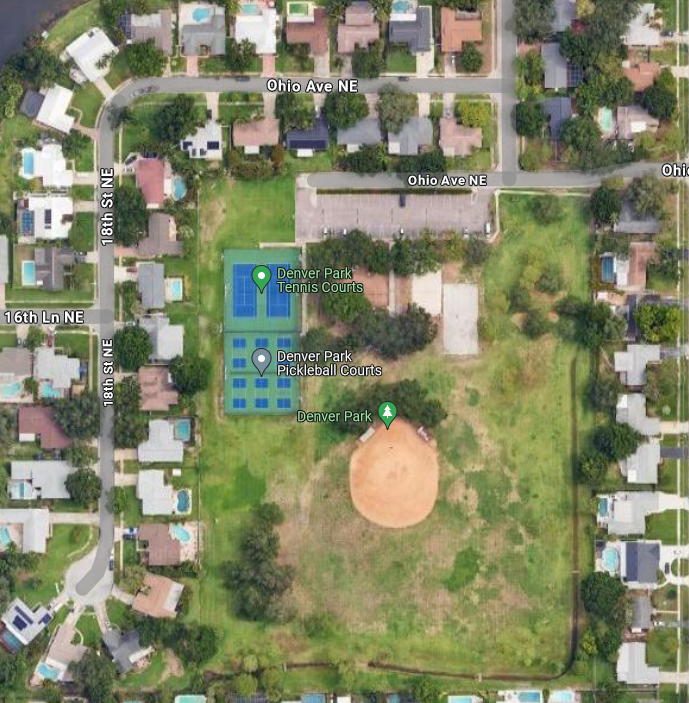
How do we move forward?
When I asked her this question, Nalini replied:
"In order to change, it's a long-term process that begins with educating communities and players themselves. We have to help them understand that this game is hurting other people."
"We must stop denying that this is a problem."
This is how we move forward together.
Once we accept that pickleball noise is a real problem for many people, perhaps we can find some viable solutions to fix it.
Your call to action
If this resonates with you, please consider doing your part to:
- Listen to the people in these neighborhoods to truly understand where they are coming from
- Offer suggestions to your local government to help find a solution for everyone in the neighborhood
- Sympathize and empathize with your neighbors rather than ignore or villainize those who speak up
- Ask for courts to be built at a safe distance from neighborhoods and homes
- Implore your fellow pickleballers to do the same
If we don't find solutions or at least learn to work together, us pickleballers risk losing our courts or causing the people around us to lose their minds.
And, I think I speak for many when I say, neither of those are an outcome we want.


Love Pickleball? Join 100k+ readers for free weekly tips, news & gear deals.
Subscribe to The DinkGet 15% off pickleball gear at Midwest Raquet Sports











